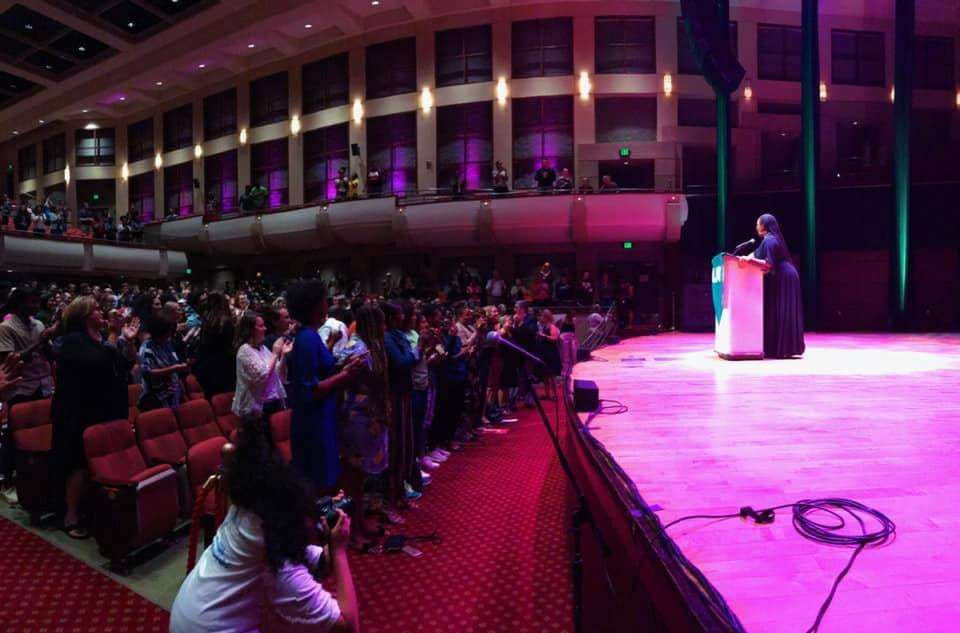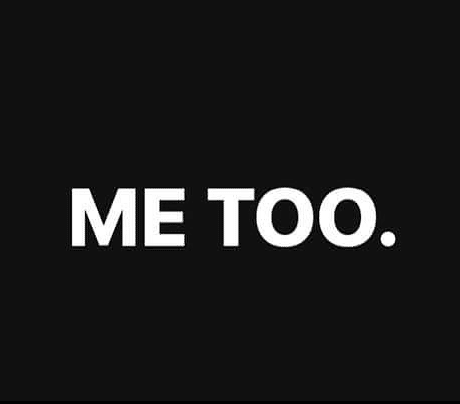On Tuesday, October 9th, “Me Too” movement founder and civil rights activist, Tarana Burke, offered a lecture at UAB’s Alys Stephens Performing Arts Center, covering her activist roots, time as an organizer in Alabama and tomorrow’s aspirations for combating sexual violence.

Born in the Bronx, at a young age, Tarana’s grandfather introduced her to black scholars, such as Angela Davis and bell hooks, which complimented her mother’s collection of black feminist literature. This, she believes, gave her a cultural and historical grounding but didn’t know what to do with it. As a result, at the age of 14, Tarana became an organizer for the 21st Century Youth Leadership Movement, focusing on notorious issues such as the Central Park jogger case and the death of Yusef Hawkins.
Following her efforts as an organizer at Alabama State University and Auburn University, Tarana worked as a summer camp director, where she noticed, every year, a young woman shared her sexual violence story. Specifically, a 13-year-old survivor, who she calls Heaven, shared her story with Tarana in private but claims she rejected this disclosure because she wasn’t ready to combat sexual violence. Following, Tarana met a 7th grade girl who shared her survivor story which revolved around her 21-year old boyfriend. However, this time, she mustered the courage to confront the issue — the abuser happening to be a man she knew from the community. These experiences influenced Tarana and colleagues to create workshops that address sexual violence, giving young women the language to combat sexual violence because, in her words, “How can we heal something we cannot name?”. From this, “Me Too” came to fruition.
After creating a MySpace page for “Me Too” in 2006 and introducing healing circles for sexual violence survivors, people across the country reached out to Tarana and colleagues, thanking them for their efforts. Responding to this support, they began making informational folders on how to create your own healing circles, distributing them near and far with the little funding and resources they had available. Shortly after, she moved from Selma to Philadelphia, taking this message to local public schools which led to the local district sanctioning re-education on consent.
Fast forward to October 2017, Tarana exclaimed “Me Too” went viral, “…like a lightning bolt.” In the first 24 hours of the initial “Me Too” social media post, there were 12 million Facebook posts proclaiming this message. However, after a year of mainstream attention and support, many who conveyed those two words are still in need of resources and support. As a result, this movement is not about taking down powerful men — no one is going to build a movement by targeting people. It is not a women’s movement but a survivor’s movement. A movement committed to healing and action.
“Me Too” movement is a global community of survivors committed to amplifying the voices of those most vulnerable, such as Native Americans and the transgender community, who experience sexual violence at disproportionate rates. “Me Too” is about representation, meaning people need to see themselves in the movement. The most concrete ways to change these conditions are through laws, policies and culture, namely here at UAB where we celebrate a list of shared values, such as integrity, respect and diversity. Tarana asked if these sentiments truly challenge sexual violence at UAB, or do they just pay lip service to issues in our periphery?
Everyone deserves to feel safe, and we must work together to change our society’s outlook on consent. It is not enough to celebrate Tarana’s story and fame. We must try to end sexual violence by concluding that we are enough and act on this conviction.
Me, too.
Resources for addressing sexual violence at UAB:
UAB Title IX Office – Report An Incident

